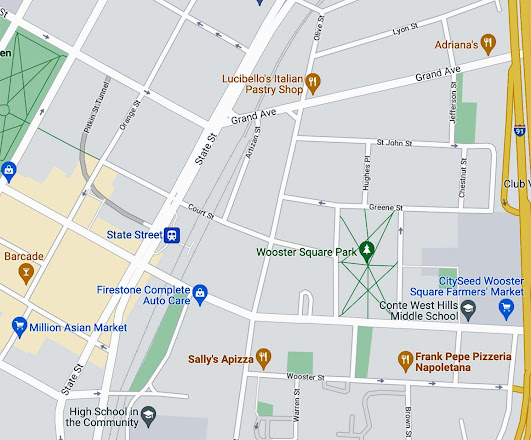Three brothers, sons of Orlando Erastus Chamberlain and Mary Cram, all became newspaper men. These three, Ernest Orlando Chamberlain (1859-1898), Wilbur Johnson Chamberlain (1866-1901), and Walter N. Chamberlain (1869-1900) are my first cousins, three times removed. They all died between 1898 and 1901. Ernest had reached the pinnacle of his profession as managing editor of the New York Evening World working for Joseph Pulitzer, but the pressures of work then seemed to affect his health, and he finally succumbed to pneumonia at the age of 38. Wilbur and Walter likewise had health problems and died at 37 and 30 years of age respectively. Only Wilbur had surviving children. Here are newspaper notices about them.
[The Philadelphia Enquirer, Thursday, 8 January 1885, page 8] Elizabeth, N.J. -- The libel suit of ex-mayor L.V.F. Randolph, of Plainfield, against ERNEST O. CHAMBERLAIN, formerly editor of the Plainfield Bulletin, for $20,000 was tried yesterday. The jury returned a verdict for six cents.
[New York Herald, Tuesday, 19 April 1898, p. 13]
ERNEST
O. CHAMBERLAIN, managing editor of the Evening World, died last night
of pneumonia at his home, Rockledge, at Edgewater on the Hudson.
Although Mr. Chamberlain had been ill for a month, his death came as a
shock to his friends. Reports from his home told that he was improving,
and that he would return to his place in the field of newspaper work
after a period of rest. Mr. Chamberlain's condition became so alarming
on Sunday afternoon that his physicians were hurriedly summoned. He
continued to grow worse until the end last night. Mr. Chamberlain was
thirty-eight years old and had earned for himself a conspicuous place
among the editors and writers of the country. He was born at Great Bend,
Pa., in 1860, and received a common school education and began writing
for the Great Bend Reporter when quite a young man. He afterward went to
Dunellen, N.J., and edited a newspaper called the Rock. Just after
attaining his majority, Mr. Chamberlain bought the Plainfield (N.J.)
Bulletin. His treatment of the politics of New Jersey resulted in his
being called to edit the Trenton Times. Afterward, he went to
Philadelphia and became New Jersey editor of the Philadelphia Press. In
1886, Mr. Chamberlain came to New York and was employed on the New York
Sun, where he remained until 1892. His principal work was of a political
nature. From the Sun he went to the World, becoming the city editor.
For five years he had charge of either the morning or evening editions
of the World, except during brief periods when he had charge of the
gathering or writing of news of special importance. In August 1897, Mr.
Chamberlain went to Europe and on his return wrote a series of articles
on the government of European cities, which were widely quoted and
favorably commented upon. Mrs. Chamberlain survives her husband. Two of
his brothers are newspaper men.
[Batavia Daily News, Thursday, 21 April 1898, page 2] ERNEST O. CHAMBERLAIN, news editor of the New York Evening World collapsed a few weeks ago from overwork getting out extra after extra of the yellow journal. He became crazy, and his death occurred this week.
W. J. CHAMBERLAIN DIED AT CARLSBAD -- New York, Aug. 15 -- Word has reached here from Carlsbad, telling of the death of W.J. Chamberlain, one of the best American newspaper men. His death occurred yesterday. Death was due to cerebral congestion and heart failure. Chamberlain was born in Great Bend, Pa., on March 12, 1866. He did his first newspaper work in Jersey City and joined the staff of the New York Sun in 1890. He continued in the services of the paper until his death. He had a part in the most important news getting exploits of his day. His story of the fight at Santiago during the Spanish-American War caused widespread comment. When war broke out in China, Chamberlain was sent there. Illness forced him to return to London some weeks ago. [The Buffalo Enquirer, Buffalo, New York, Thursday, August 15, 1901, page 8]
[Philadelphia Enquirer, Wednesday, 18 July 1900, page 4]
Plainfield,
N.J., July 17 -- WALTER N. CHAMBERLAIN, who has been engaged in
newspaper work in New York for the past ten years, died at his home in
this city this morning after an illness lasting about two weeks. Mr.
Chamberlain was born in Plainfield 31 years ago, and was a brother of
the late Ernest Chamberlain, who was managing editor of the New York
World for a time. While engaged in professional work at the burning of
the steamship piers in Hoboken June 30 he contracted a cold which caused
his death. He was unmarried.
